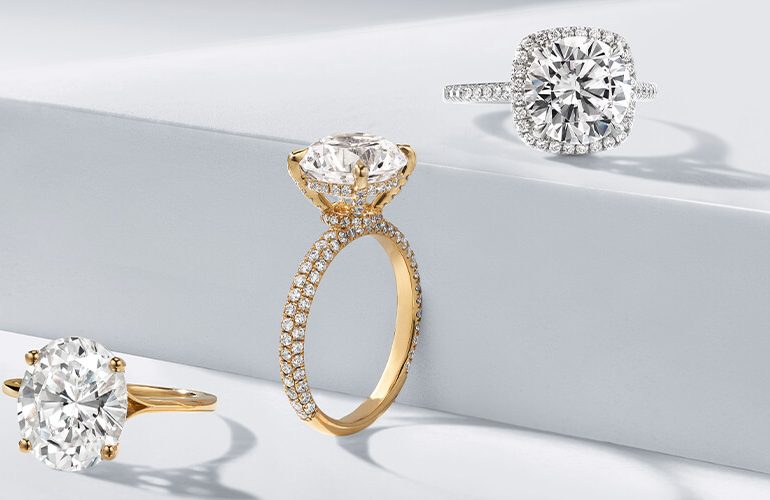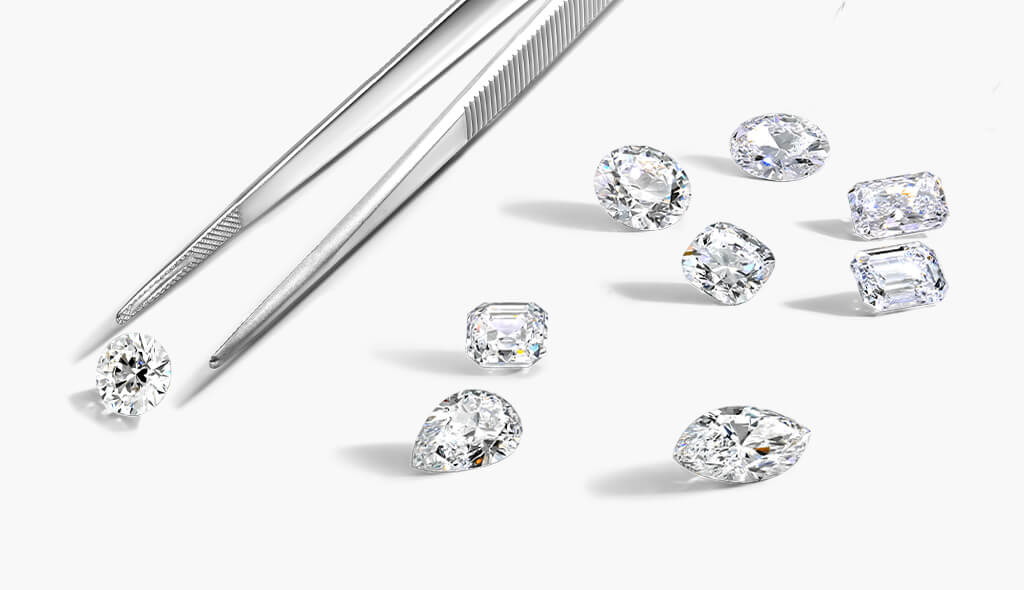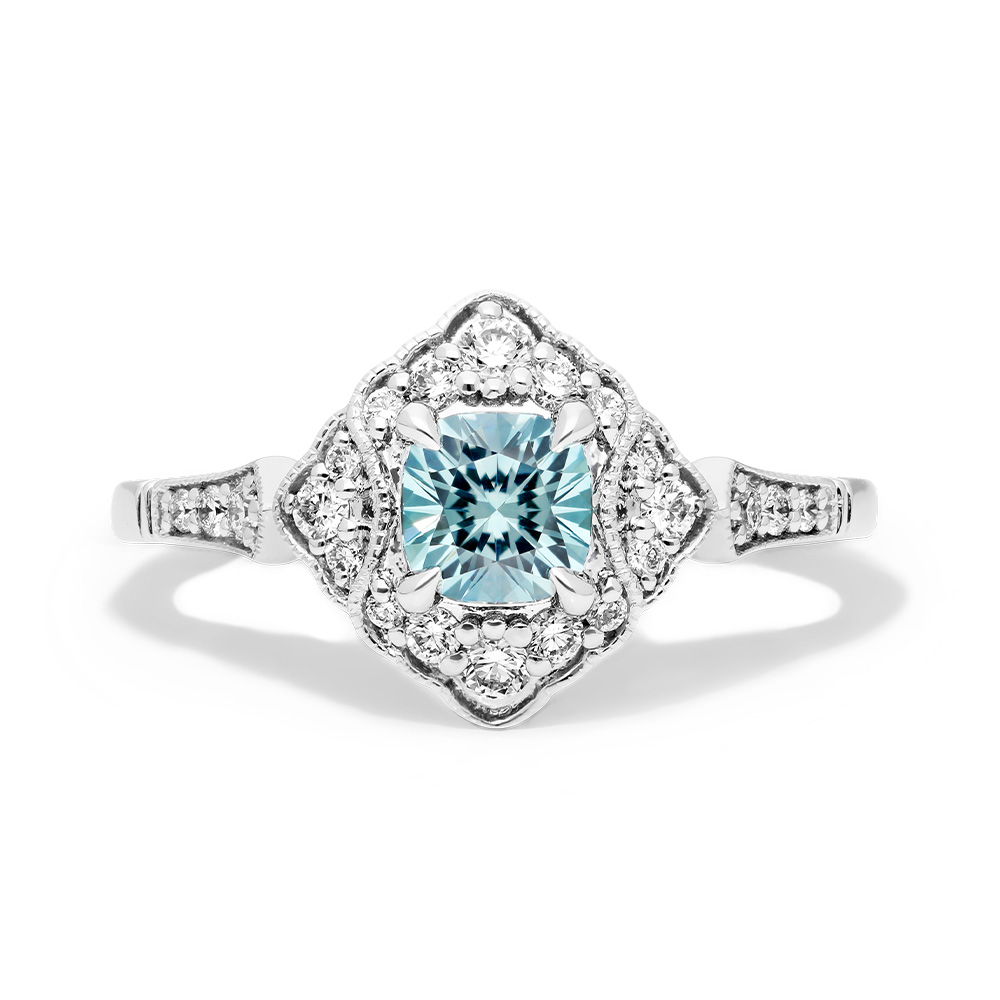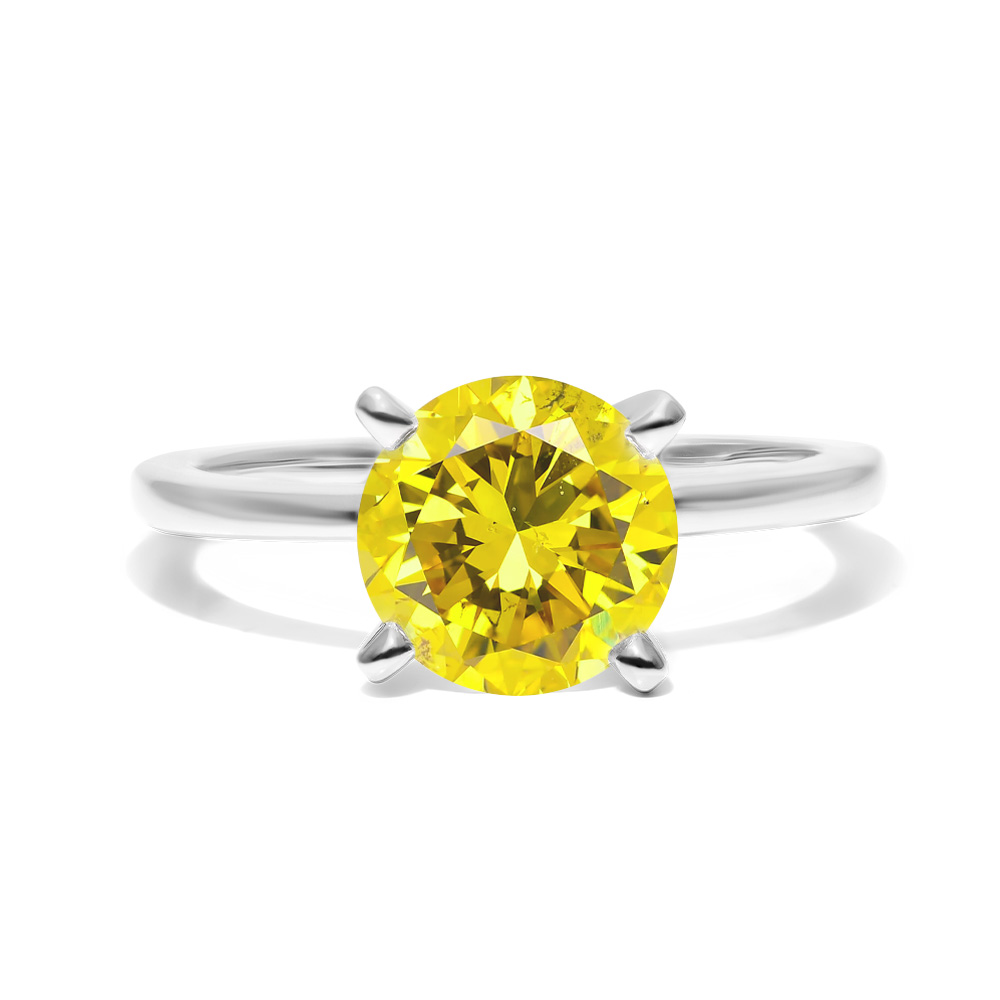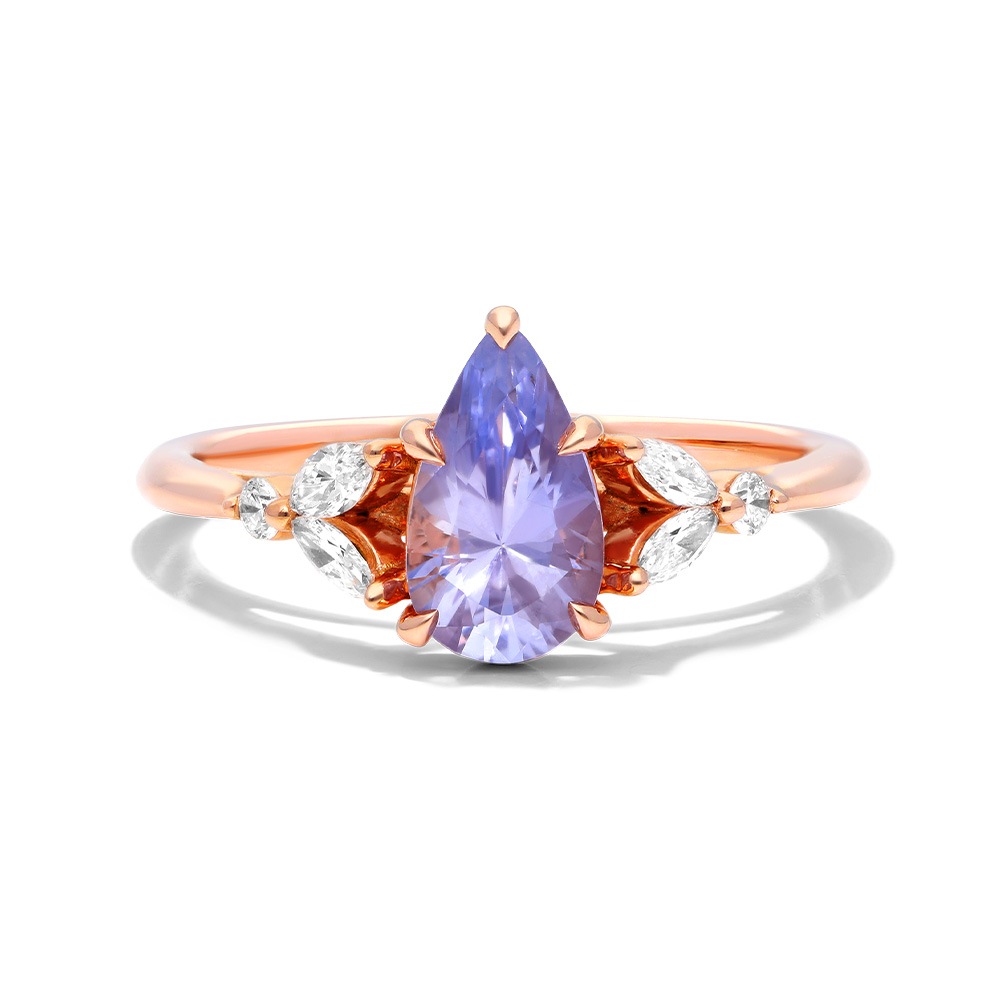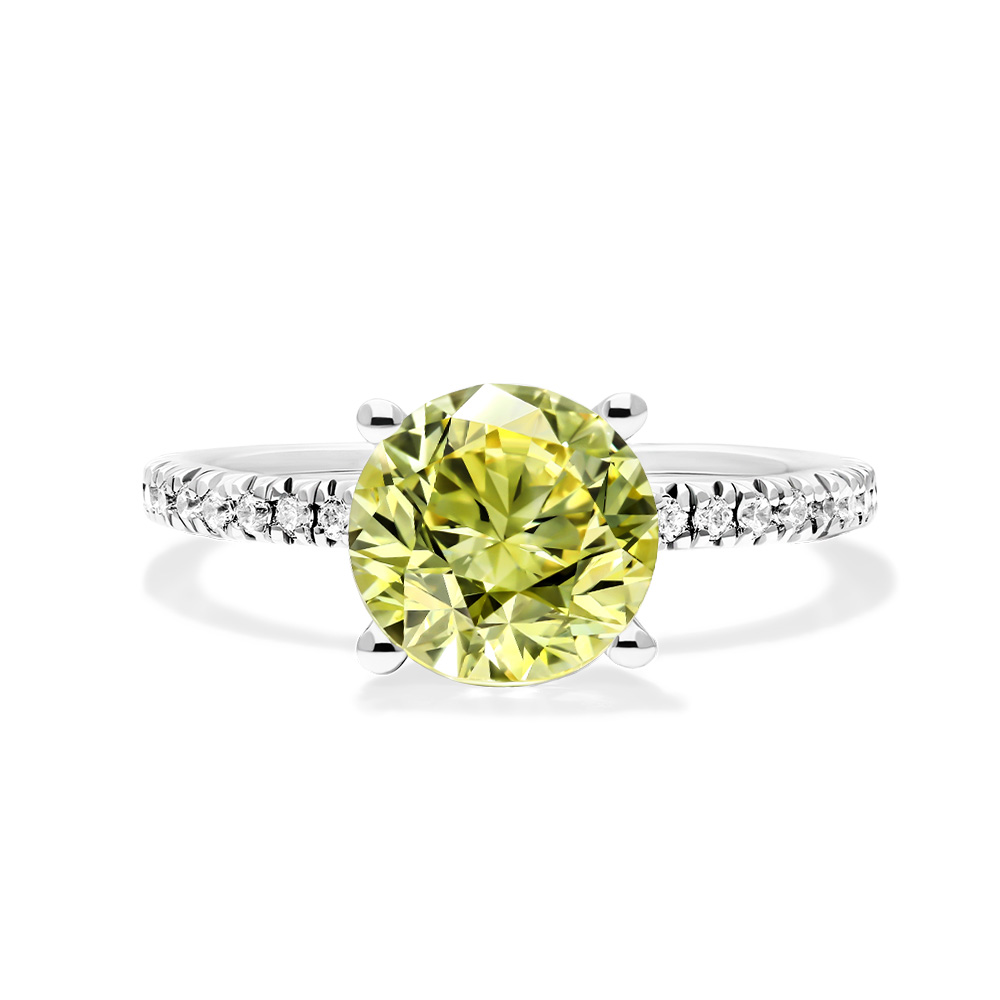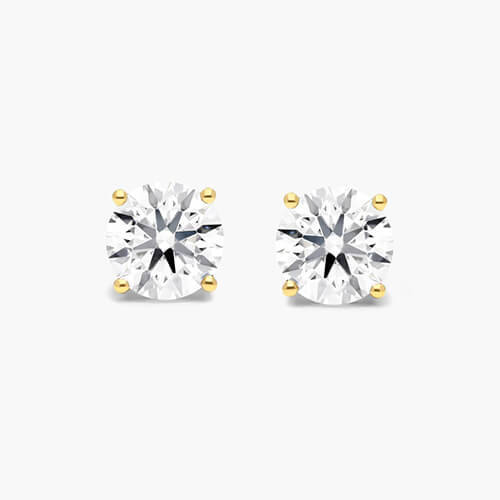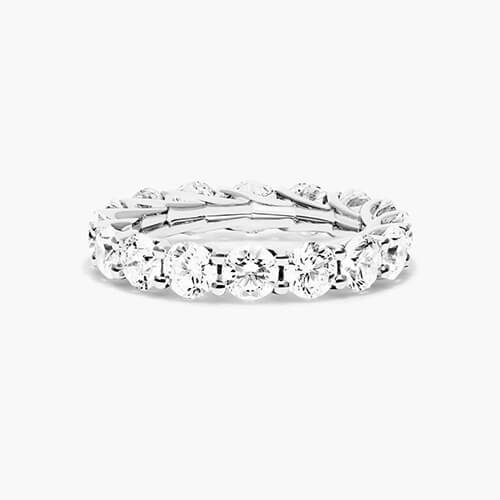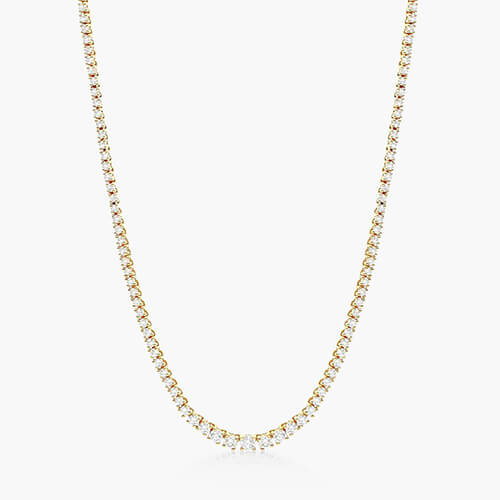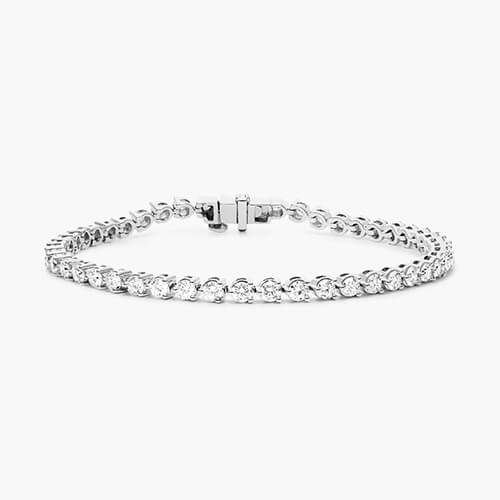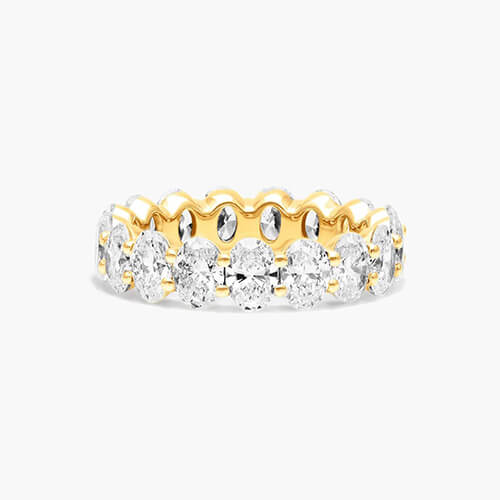When shopping for the perfect diamond engagement ring, you have most likely come across all types of diamonds. You may have also come across lab-grown diamonds and wondered what they were. Well, you’ve come to the right place. Here is everything you need to know about lab-grown diamonds to help you decide which sparkler puts that twinkle in your eye.
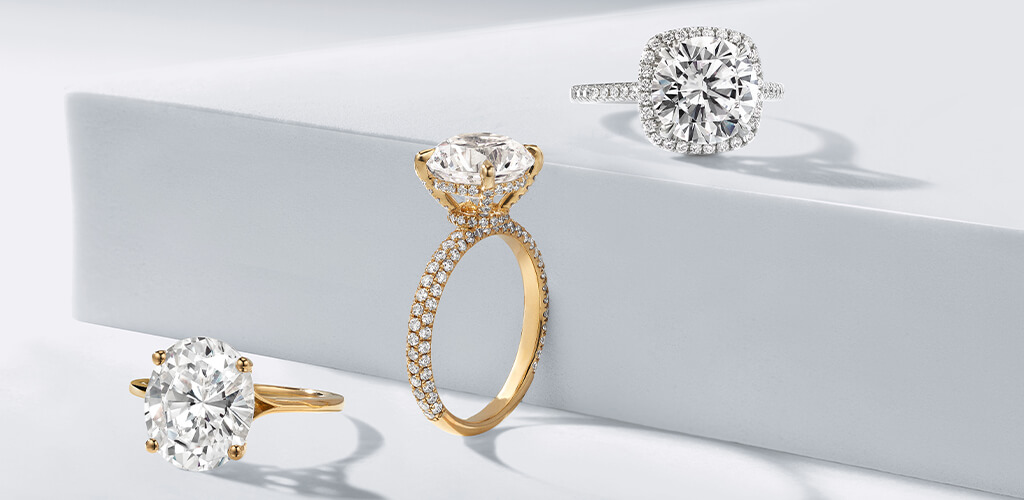
Table of Contents
What Are Lab Grown Diamonds?
Lab grown diamonds are optically and chemically identical to natural diamonds. The only difference is their origin. A diamond seed is placed in conditions identical to those in underground mines. Then, a carbon coating is added to help the diamond crystallize as it grows.
The crystalline form of carbon we call “diamond” can be attained only through intense heat, constant pressure, and a good amount of time. Nowadays, lab grown diamonds can be fully formed in a few weeks rather than millions of years. The result is a lab grown diamond that differs from a mined diamond in name only.
If you were to look at both types of diamonds through a professional jeweler’s loupe, or if you were to inspect both diamonds on a molecular level, you would see no difference. The same result was achieved through very different processes.
How Is A Lab Grown Diamond Made?
A lab grown diamond is produced by replicating the natural process that diamonds are subjected to when their natural counterparts are grown. Carbon is exposed to high temperatures and high pressure in a controlled environment (laboratory) thus creating a diamond.
Lab grown diamonds can be made using two different methods. The first is known as the HPHT method, where a small diamond seed is placed into a piece of carbon. The carbon is pressurized and exposed to high temperatures. Finally, the pressure and heat then melt the carbon allowing a diamond to form around the initial seed.
The second is the CVD method, which also requires a diamond seed. The seed is placed into a sealed chamber that is heated and filled with carbon-rich gasses. These gasses are ionized into plasma using advanced technology that breaks down the gasses’ molecules and allows pure carbon to stick to the seed, forming a new diamond.
Fun fact: It typically takes a lab grown diamond less than a month to grow. A 1-carat white diamond takes around two weeks to form, whereas fancy color diamonds like yellow and blue diamonds take between 5-10 days to form.
Pros and Cons of Lab Grown Diamond Engagement Rings
Lab grown diamonds are graded and certified using the same process as mined diamonds. So what are their pros and cons when it comes to lab grown diamond engagement rings? Let’s find out.
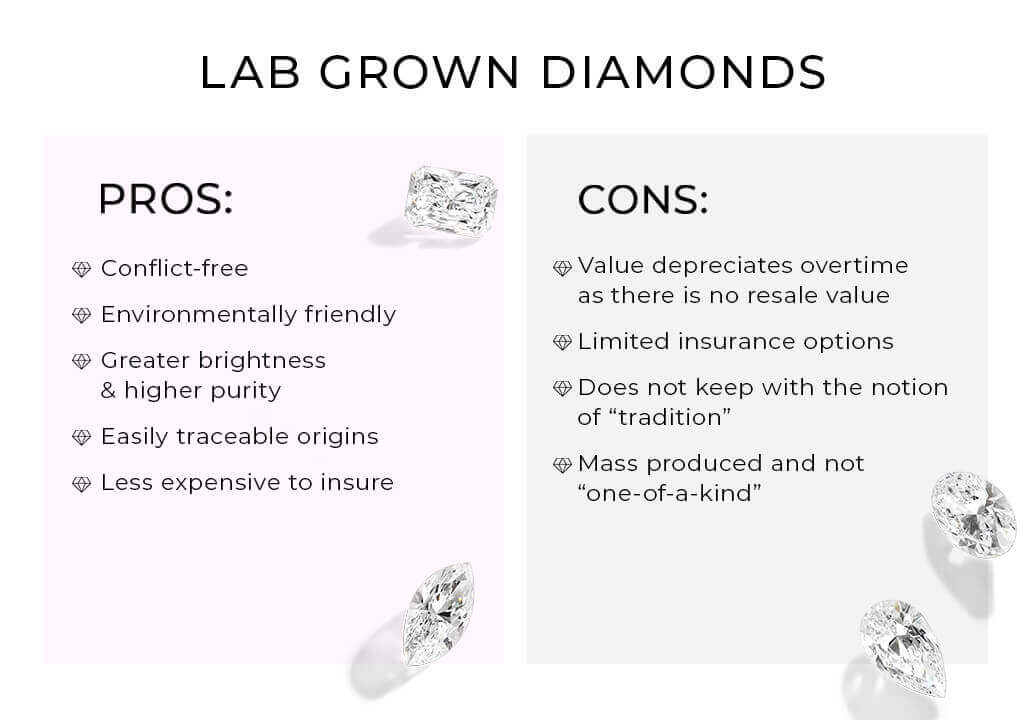
What to Look for in a Lab Grown Diamond Engagement Ring
Price
Modern-day consumers will be happy to hear that lab grown diamonds are generally more affordable than natural diamonds. Meaning, lab grown diamonds often cost 40 to 65% less. Experts suggest that as new technologies develop, these prices will drop even further. Want to know why? Well, the diamond-growing process is less resource-intensive than the diamond-mining process. It simply costs less to grow a diamond in a lab than it does to mine a diamond from the earth, and those savings are passed along to diamond shoppers.
Color & Quality
The color of a lab grown diamond is everlasting. The lab diamond you buy today will look exactly the same when your grandchildren inherit it from you. Additionally, lab grown diamonds are assessed and graded according to the 4Cs: color, cut, clarity, and carat (just like mined diamonds).
Did you know you can also shop lab diamonds by color? Choose your perfect diamond and view it in 40x superzoom & 360° HD to start designing your dream engagement ring today. Fancy color lab grown diamonds are available in yellow, blue, pink, purple, green, red and orange.
Sustainability
As lab grown diamonds are not mined, their popularity is growing. Not to mention this diamond choice is guaranteed to come conflict-free. It is also easy to track the origin of lab grown diamonds.
How to Care for Your Lab Grown Diamond Engagement Ring
Your lab grown diamond ring needs to be frequently cleaned, just like a traditional diamond ring. Depending on your ring style, definitely consider regular maintenance of your ring to check for loose stones and wear-and-tear of prongs. But on a regular basis, simply follow our step-by-step infographic to maintain your lab grown diamond engagement ring’s radiance.
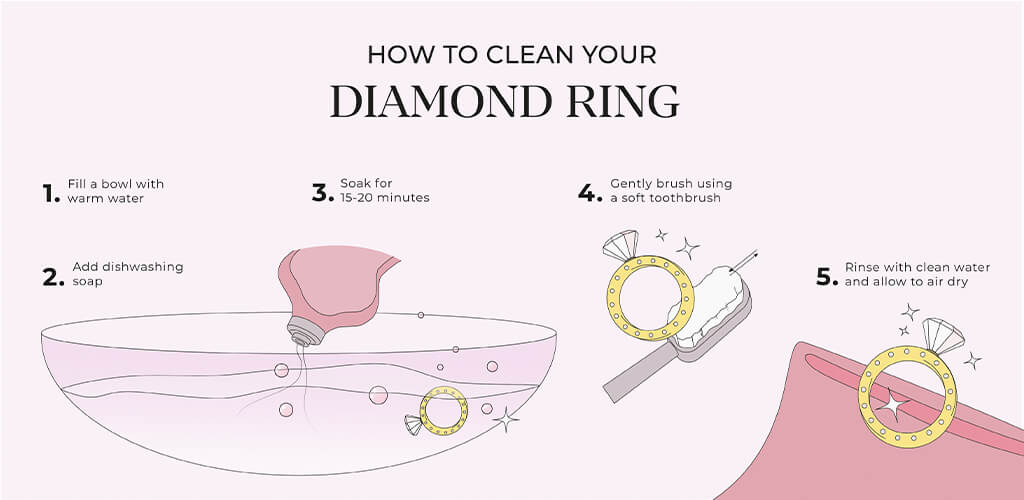
Where Should You Buy A Lab Grown Diamond Ring?
Lab grown diamonds are not available at every jeweler. But fortunately, at JamesAllen.come, we stock a tremendous inventory of lab grown diamonds along with premier engagement and wedding rings. Explore your desired diamond in 360° HD views and up to 40x magnification so you can truly design your dream engagement ring.
All loose diamonds, engagement rings, and fine jewelry come with a lifetime warranty, financing options, and of course, a grading certificate.
FAQs
Are lab grown diamonds less expensive than natural diamonds?
Typically lab grown diamonds can cost roughly 40 to 65% less than a natural, mined diamond. This means customers can easily get a high-quality diamond or a larger stone with a significantly less expensive price tag. Want to know why? The difference is due to supply. Natural diamond supply is sparse, due to the hundreds of years it takes for nature to create a diamond. Yet with man-made diamonds, there is no cap on the supply, which drives the price lower and lower as supply goes up.
Are lab grown diamonds actual diamonds?
Yes, yes, and yes! Lab grown diamonds are just as real as diamonds mined from the earth. There are no optical or chemical differences between the two diamonds, plus they have the same shape, size, color and clarity grades. In fact, the only real difference is in their formation.
Are lab grown diamonds considered a good investment?
It is very common for people to mistakenly assume that lab grown diamonds are not worth anything or a good investment. However, they are diamonds and possess value, even though they are manufactured.
Can you insure lab grown diamonds?
Yes! Just like mined diamonds, lab grown diamonds can be insured.
Do lab diamonds pass the diamond tester?
The answer is yes! Lab diamonds have the same carbon composition as natural diamonds. Therefore, they have the same thermal conductivity. The test results are positive when exposed to the diamond tester, since the diamonds have the same physical and chemical properties as natural mined diamonds.
Final Thoughts
So is a lab grown diamond for you? Ultimately, only you can decide the answer to this question. But if you’re looking to maximize your budget without compromising on quality, then a lab grown diamond engagement ring may be calling your name.
Still searching for the perfect engagement ring? Don’t hesitate to reach out to us at JamesAllen.com. Our customer service team is here to assist 24/7.
SHOP RELATED PRODUCTS
An experienced content writer with four years' experience, Tarryn enjoys educating and guiding jewelry shoppers, providing them with valuable insights and best practices for making informed purchases.

